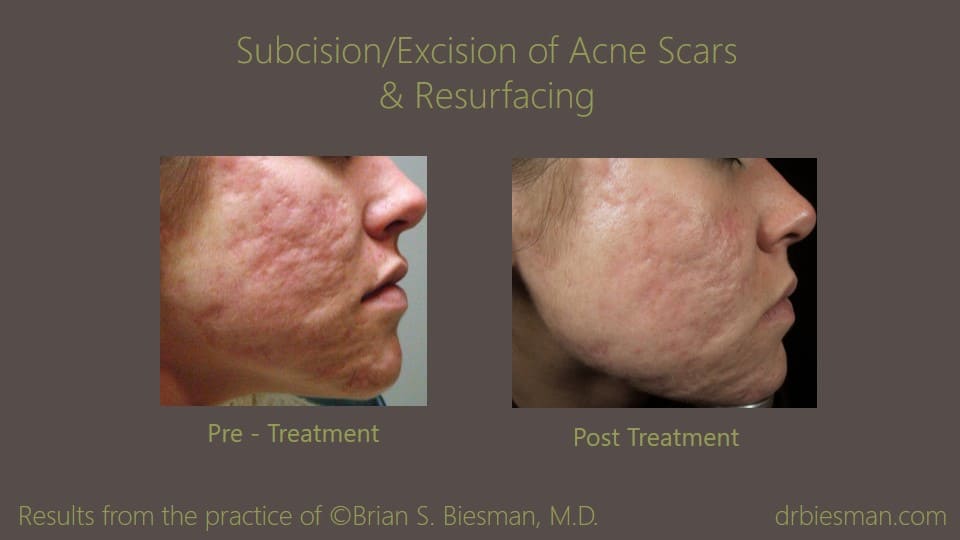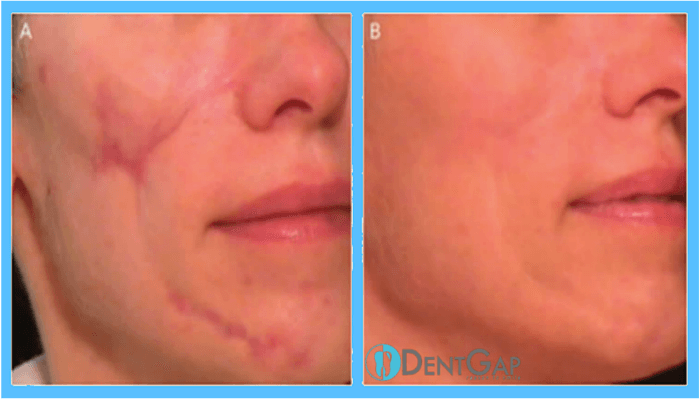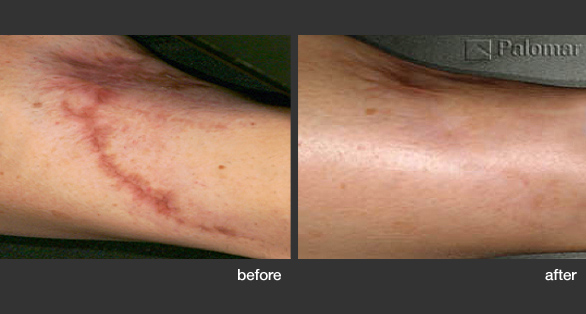
Acne scars develop after severe cases or when the acne has been forcibly picked or scratched. There are many types of acne scars, each entirely treatable.
The only sure method of acne scar treatment is prevention early on. In general, you should never pick or squeeze acne, especially inflammatory acne or �pustules�. Squeezing forces infected material deeper into the skin, causing additional inflammation and possible scarring.
But there are many acne scar treatment options. All acne scar treatments are short procedures � fifteen minutes to an hour � but recovery times vary from fifteen minutes to many months. Scabbing, redness, swelling, flakiness, dryness, bruising and uneven skin tone are common post-treatment effects. Acne scar treatment can cost anywhere from $50 to over $3000. Ask a dermatologist which type of acne scar treatment is right for you.
Dermabrasion works on shallow acne scars. For decades, sandpaper was used to scrape away damaged skin, allowing new skin to grow in its place, but now machines with rotating diamond edged wheels are used.
Laser resurfacing is a newer resurfacing technique, with the same effects as dermabrasion. Penetration depth into the skin is more easily controlled with a laser than with dermabrasion and other methods.
Chemical peels are designed only for the lightest of cases. It involves application of different types of acid to the skin in order to remove the top layer so that a smoother layer can surface.
Punch techniques are used for deep acne scars. Punch replacement or excision involves removing the pitted scar, followed by a skin graft or suture. Punch elevation, on the other hand, just cuts the scar loose and allows it to float up to the level of surrounding skin.
Subcision is a method whereby the scar tissue is broken up underneath the surface of the skin, forming a pool of blood under the scar. The blood clot helps form connective tissue under the scar, leveling it with the surface.
Dermal fillers are used for deeper acne scars. Material - often collagen or fat � is injected under the scar to bring it to surface level. Injections usually last about six months, although research into the longer lasting materials continues to this day.



Discover The Complications That Could Arise From Acne
If you think you have a problem because you have acne, you are right. But it is not half as bad as what you would be faced with if you developed complications from your acne condition. If that sounds complicated, it is more so because there are different kinds of acne.
Read More
Five Common Facts About Acne Treatments
Acne is an issue for everyone. Some individuals have hormonal acne which requires �stronger acne treatments regimen. Knowing the facts about hormonal acne makes the difference in how it is treated.
Read More
Can You Find a Cure for Acne?
Too many acne companies will tell you only what you want to hear when it comes to finding a cure for acne.� They'll tell you that their products are the best, the only ones that really cure your acne, and that you're wasting your money buying a competitor's product.� True, this is how most companies operate, but here's where they're going wrong: There is no cure for acne.�
Read More
How Do I Find Out What Is Causing My Acne?
This is a question virtually anyone with acne wants to know the answer to. Knowing what is causing your acne gives you the power to potentially stop the cause in its tracks, leaving you acne free and a great deal happier.
Read More
This Article was written by : Seth Miller, Discuss about Health Articles, it was published at September 7, 2005 and was updated at
Comments
Post a Comment